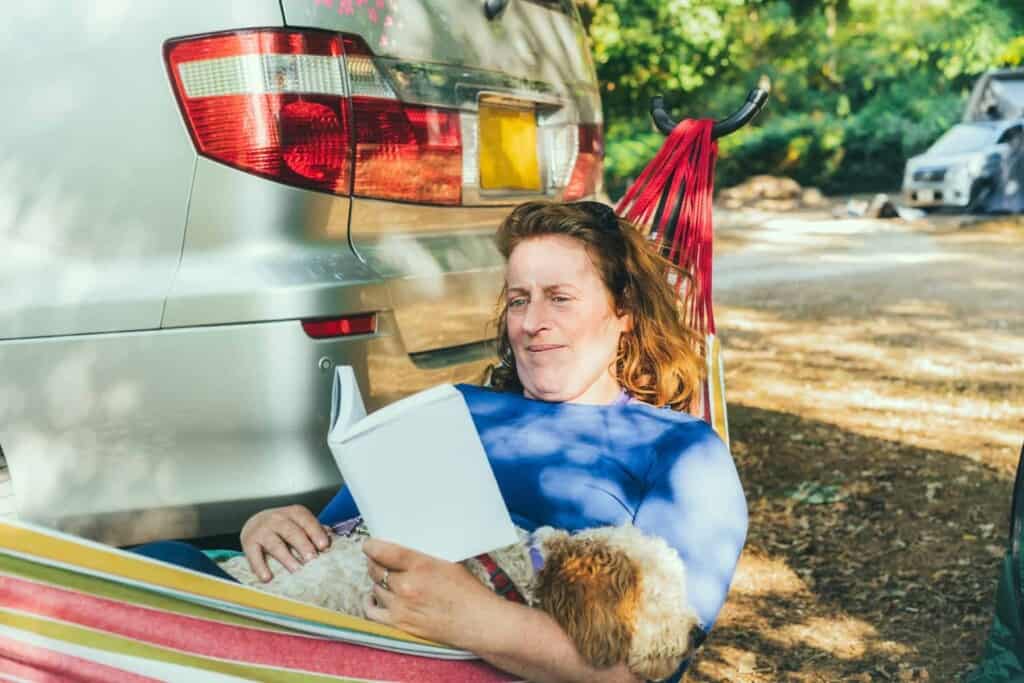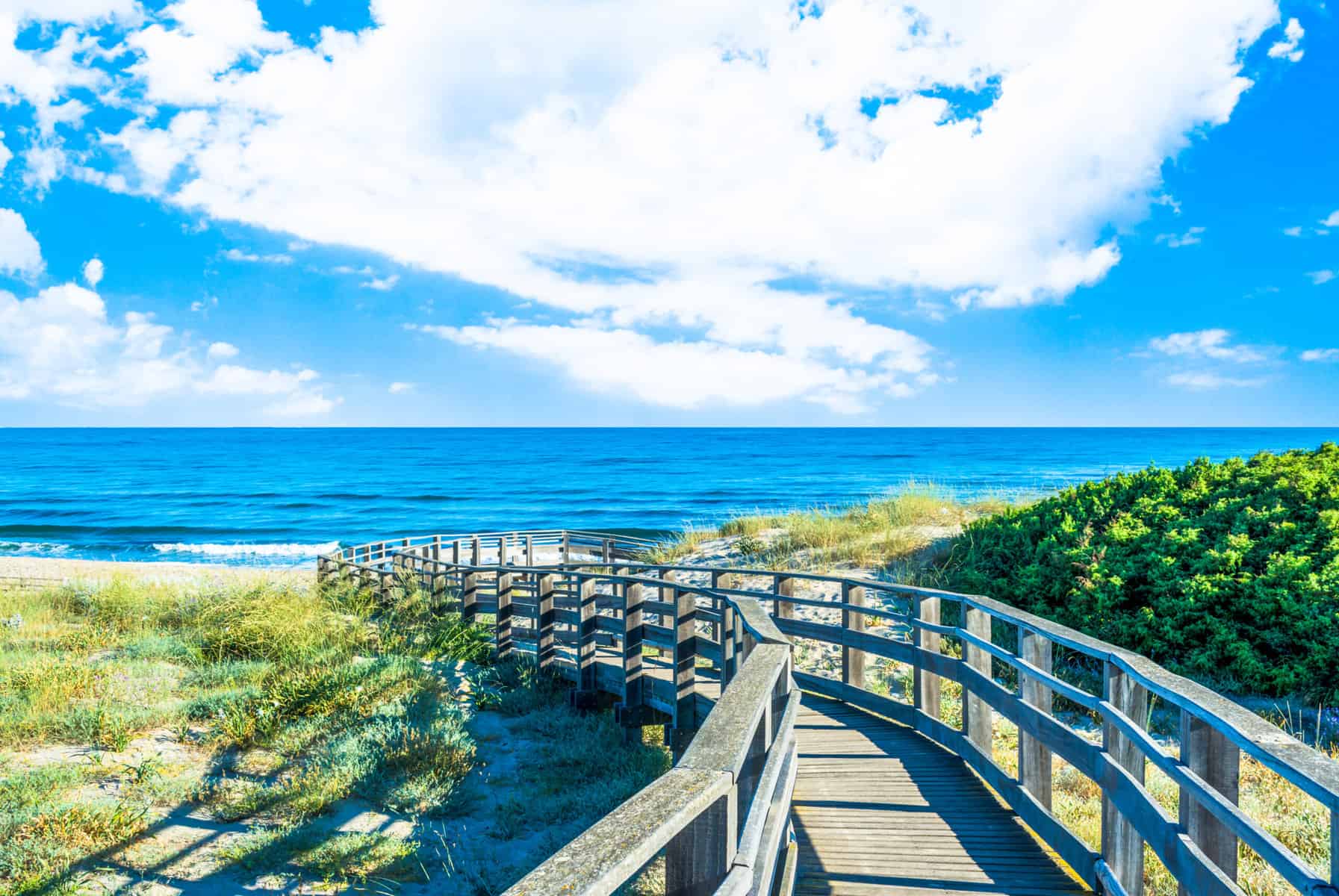Full-time RVing is not just about surviving. It is about really getting out there and living. It’s about enjoying every drop of life around you. Only, you are doing it in an RV. So whether you are just surviving full-time RVing today, or you are thinking about trying full-time travel tomorrow. Here are my best suggestions on doing it well to have fun and keep your wheels turning.
Top 6 Full-Time RVing Survival Tips (so you can thrive)
Making the most of this lifestyle isn’t rocket science. Living in an RV and traveling doesn’t have to be expensive, complicated, or lonely. Here’s how to do it right.
1. Prepare and Save Money for Emergencies and RV Maintenance
Unexpected costs and emergencies can be a huge drain on your full-time RVing expenses. You can budget for the usual monthly costs of living, but sometimes those expenses combined with emergency RV repair situations can quickly drain your budget. The best way to prepare for those times is to maintain your RV on schedule.
Two things that can begin a downward spiral of costs if you are not maintaining your RV include:
- RV Tire Blowouts: RV tires should be replaced every 2-3 years (based on your use as a full-time RVer). In addition, adding a TPMS (Tire Pressure Monitoring System) to your RV tires can be worth the investment. They can let you know when your tires are overheating, losing pressure, or need more air. It’s easy to lose a tire on a large vehicle and not even feel it. That sudden tire loss can result in added costs or injuries.
- Ignoring setup and teardown lists: Don’t ignore the importance of following campsite setup and teardown lists. Leaving behind necessary items like hoses and tire blocks can add up with the cost of replacements. Worse, missing an item on your checklist can result in damage (like if you forget to safety check your hitch!)
2. Remember Full-time RVing is Not Like a Vacation
One of the best lessons I learned before we even started full-timing is – you are not on vacation. You can’t go sightseeing, dining out, and exploring every day! For some, this is way too costly on your budget. For others, it turns what used to be vacations into daily expectations. It can lead to boredom, overdrawn budgets, and lack of ability to ‘find something new to do’.

It is OK to rest on the weekends. It is OK just to sit and read all day. It is OK to just have a bowl of cereal for dinner or veg in front of the TV ALL day long. Whatever your ‘do nothing’ day looks like, you still need those while living in an RV.
Sometimes full-time RVing is about doing like nothing at all!
2. Build Downtime Into Your Days
Downtime is also important for catching up on a list of RV repairs and upgrades you need to make. When you are constantly on the go, those items can be pushed to the back of your to do list. Then they sit there nagging at you.
Sometimes your stay in a new area just needs to be about taking care of your rig and not everything else.
We have friends that used to pick up and move every week. They were so stressed and didn’t know how to make it stop. They were newly retired, enjoying the RV life, and loving it. Until the ongoing planning and plotting of relocating started taking its toll. That’s when full-time RVIng survival was not fun for them.
4. Stay Longer in One Place
For each full-time RVer, how long you stay in a long term campsite will depend on whether you are still working, have a family, what your budget is and more. But even if you have the time and money to travel somewhere every single week, you don’t need to and I would probably say, you shouldn’t. This is an easy, quick way to burn out on full-timing.
Staying someplace for a few weeks gives you time to retrace your steps and eat at a familiar area restaurant. Or have a chance to visit with someone a second time you have just met in your campground area. As humans, we need this connection and a sense of familiarity to feel relaxed. It can wear us down if we are always vetting new encounters for safety and security and our foundation will feel unsettled.
5. Take time to re-evaluate where you are in your full-time RV life.
I hear a lot of RVers who full-time say they see their families more when they started RVing than when they did in their brick and mortar. Whether this is true or not, if you feel like you are home sick, you should do something about that.
Are you experiencing what you want? Or are you driven by outside forces that are molding your decisions? If you need more family time, then plan it. If you are missing some experiences of home, get creative. Is there a way you can have a favorite local dish shipped to you or can you get all the ingredients and make it yourself? Did you used to take a special walk along a familiar road at home? How can you recreate that walk in your location or add a walk to your routine?
Sometimes it is not about missing something from home as much as it may be about missing a feeling or experience that is possible to rebuild or enhance. It may also be about letting go or learning to enjoy something new on a whole different level.
6. Think like a new RVer when searching for new campgrounds.
Another reason I hear fellow RVers become disenchanted is due to the difficulty of finding an RV spot or campground or the costs of those campgrounds.
Do you remember how determined you were when you were new to RV living? And do you remember how resourceful you were in learning so many things you had no idea about before RVing? It’s time to think like that that again.
We can always find a campground that works with our budget with the amenities we want.
- We can stay at resorts or mom and pop campgrounds.
- As RVers we can boondock, we can moochdock and we can go camping.
- We can stay near rivers, oceans, mountains, and valleys.
- Want to camp near people or away from people or both? That’s easy too!
As full-timers, we see all the new people showing up at the gym on New Year’s and then we never see them in a few weeks. It is always rough dealing with and helping new RVers. Some of them will never understand the rewards of full-timing. Others will take to it like us and be forever hooked. We need to be patient.
Like all industries, the RV market and this lifestyle is an ever-changing, ever-growing beast. If we use a little ingenuity, we can change on a dime. Then we can survive full-time RVing and refocus on our travel wants and needs.
All of us can make the decision to survive full-time RVing and love it.
These full-time RVing survival tips can help alleviate or even prevent nomadic stress. Each of these tips can be a source of relief. Doing these will turn them into habits you don’t have to overthink. They will also give you room to breathe and take life at a more stress-less camping pace so you can go about living life in your RV, not just surviving it.
Let RV Trip Wizard Remove the Stress of Full-time RVing
Don’t get caught on dangerous roads for RVs, or unable to find campgrounds at the last minute. RV Trip Wizard can do the heavy lifting of trip planning so you can enjoy full-time RVing to the fullest.




